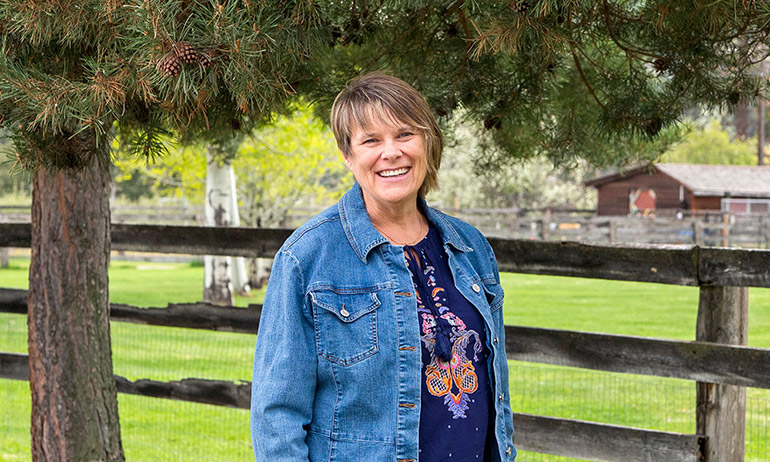
UBCO School of Nursing Professor Dr. Nelly Oelke explains why those in the smaller towns need support more than ever before.
Multiple stressors impact those living in small, rural communities
A team of researchers with British Columbia’s three interior universities are reaching out to residents in small communities to see how they are coping. The project is being conducted with faculty at UBC Okanagan, Thompson Rivers University and the University of Northern British Columbia. UBCO School of Nursing Professor Dr. Nelly Oelke explains why those in the smaller towns need support more than ever before.
Can you explain why researchers are concerned about people’s mental health?
Globally, we are in the midst of three overlapping crises: the COVID-19 pandemic, racism and climate change. The toxic drug crisis in BC has worsened as well. Research has shown that climate change events, such as wildfires and flooding, negatively influence both the physical and mental health of those impacted. And it’s well known that public health measures, such as self-isolation, combined with social and physical distancing, have resulted in social isolation, fear, financial challenges, and public uncertainty. As a result, mental health and substance-use issues — including anxiety, depression, increased substance use and overdose — have surged.
People imagine life in a small, rural BC town as less stressful than city life. But you’re saying the opposite might be true.
Rural communities are unequally affected by both the pandemic and climate change, and when these factors occur together the impact on individual and community mental health and well-being is markedly increased. Given these multiple crises that are affecting rural communities, it is important to enhance individual and community resilience.
You’re looking at three specific communities in your research. Why these three?
Our research focuses on three rural communities: Ashcroft, Burns Lake and Keremeos, although our survey is open to all rural residents in the province. Each of these communities has been impacted significantly over the last three years by one or more climate change events — including wildfires and severe flooding. While dealing with this, they have also had to deal with the challenges caused by the pandemic.
What sort of information are you looking for?
To better understand these impacts on community members, we are conducting a survey for those aged 15 years and over who live, work, or go to school in one of the three communities.
We will also be conducting community consultations and interviews in each community to better understand the residents’ needs and experiences during times like these.
People completing the survey can also share photos, stories, drawings, poems or other forms of expression to elaborate on their experiences with climate change events and COVID-19.
Once all responses have been collected and analyzed, we will conduct discussion sessions in each community to co-create solutions for resiliency in each of the communities.
What’s the next step?
This research will produce important findings about the impacts of the pandemic and climate change events on mental health in rural communities. Further, the solutions we develop with the survey respondents will promote resiliency and assist with the challenges they are facing and will continue to face moving forward. We hope that the information gathered in this study, as well as the benefits it may bring, will reach all rural communities in BC and beyond.
Can residents in other communities participate? How can they get involved?
While we have identified three different communities, our survey is open to all rural residents in BC over the age of 15 years. If people are interested in participating or want to gather more information about the study, they can contact Nelly Oelke at nelly.oelke@ubc.ca, Bonnie Fournier at bofournier@tru.ca, or Davina Banner-Lukaris at Davina.Banner-Lukaris@unbc.ca.
To complete the survey visit: ubc.ca1.qualtrics.com/jfe/form/SV_etFlMuUCZXjSklL
To submit photos, stories or other forms of expressions and answer survey questions visit: ubc.ca1.qualtrics.com/jfe/form/SV_7O1HwR1vH8so0Id
About UBC’s Okanagan campus
UBC’s Okanagan campus is an innovative hub for research and learning founded in 2005 in partnership with local Indigenous peoples, the Syilx Okanagan Nation, in whose territory the campus resides. As part of UBC—ranked among the world’s top 20 public universities—the Okanagan campus combines a globally recognized UBC education with a tight-knit and entrepreneurial community that welcomes students and faculty from around the world in British Columbia’s stunning Okanagan Valley.
To find out more, visit: ok.ubc.ca